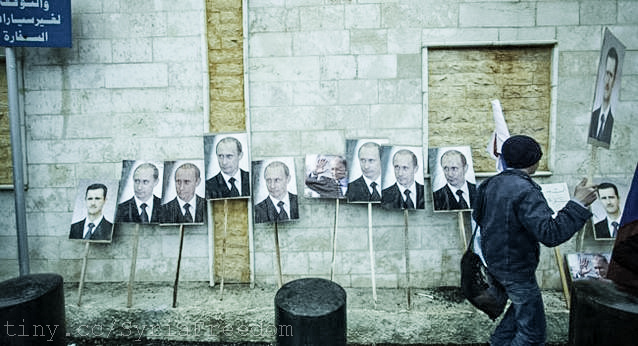Dictators don’t necessarily favour cooperation with other authoritarian regimes over democracies
Do the “bad guys” work together? It is often suggested that authoritarian regimes such as China and Russia will work in league with other democracies, but analysis from Philipp Kuntz and Daniel Odinius suggests that, just like some of the world’s leading democracies, authoritarian regimes will be extremely pragmatic in choosing their geopolitical partners.
Do authoritarian countries cooperate to counter the worldwide spread of democracy? A growing number of observers have raised this concern. Authoritarian powers such as Russia, China, and Saudi Arabia are the prime suspects, said to be deliberately fostering non-democratic governance in their near abroad or even at global level.
That said, an agenda of autocracy promotion (or democracy prevention) is difficult to detect. Authoritarian regimes do not necessarily prefer cooperation with other authoritarian governments over cooperation with democratic ones. Pragmatism rather than authoritarian solidarity seems to guide their foreign policies. If it serves their interests, they will even allow the subversion of fellow-autocrats.
Where authoritarian regimes support each other, motives other than solidarity might drive their behaviour. Russia’s interventions in Ukraine since 2014 are a case in point. According to one interpretation, Putin was worried that the overthrow of the Yanukovych regime created a dangerous precedent. His actions were aimed to undermine the establishment of a functioning democracy in Ukraine. Others, however, see the Kremlin as guided primarily by geopolitical considerations. Defending Russia’s sphere of interests led Putin to fuel conflict in Ukraine, not democracy prevention. Yet, some accounts hold that that he grasped an opportunity to play the national card to shore up his declining popularity.
Our own research on the Gulf Cooperation Council (GCC) – made up by Bahrain, Kuwait, Oman, Qatar, Saudi Arabia, and the United Arab Emirates – examines the conditions under which certain motives play a role. The way the organisation reacted to the revolutionary wave of the Arab Spring suggests that rulers can indeed have a fundamental interest in defending other authoritarian regimes. Authoritarian regimes show solidarity where an overthrow of regimes appears to threaten the own hold on power. Where the danger of spill-over is missing, other foreign policy interests can even lead to the support of anti-regime movements.
In early 2011, GCC leaders felt threatened by regime change in similar environments. Similarity was perceived in two ways. First, uprisings against Arab monarchies were considered particularly dangerous. Second, uprisings seemed risky when driven by social groups that also existed at home. In contrast, uprisings in dissimilar environments gave the GCC regimes room to manoeuvre as less was at stake. Other motives, such as regional influence, gained importance.
Differences in threat perception explain different reactions by the GCC as a whole during the Arab Spring. The GCC backed a number of similar regimes. Less affluent monarchies received financial support and the GCC helped the Bahraini crackdown on protesters by sending security forces. Two non-member states – Jordan and Morocco – were invited to join the club. The paramount objective was to prevent other monarchies from falling as this might have sent an extremely dangerous signal.
In republics, however, the GCC even undermines embattled Arab rulers. It facilitated the departure of the Yemeni president, lent diplomatic and military support to the intervention in Libya and turned against the Syrian regime. There was much less of a contagion to fear from uprisings in non-monarchies and Gulf States capitalized on protests. By supporting favourable opposition groups, they could advance their regional influence. Denouncing mass violence in other countries also gave them an opportunity to win domestic and international approval.
Responses to the uprisings also varied among GCC states as a consequence of differences in threat perception. Saudi Arabia displayed more authoritarian solidarity than others. Riyadh’s heightened fear was again rooted in assumptions about similarity. More than other GCC states it feared a spill-over of protests between similar social groups from one state to another. The Saudi royal family was especially alarmed by protests in neighbouring Bahrain as it feared they might inspire its own Shiite minority.
The example of the GCC confirms the impression that a general trend of authoritarian cooperation does not exist. Just as democracies can back authoritarian regimes, authoritarian regimes may be entirely opportunistic in their external relations. However, there are conditions under which authoritarian solidarity becomes a matter of crucial importance: if situations are considered similar enough to fear a spread of rebellion across borders.
—
Note: this post represents the views of the author and not those of Democratic Audit UK or the LSE. Please read our comments policy before posting.
—
Daniel Odinius is a Doctoral Fellow, Bamberg Graduate School of Social Sciences (BAGSS)
Philipp Kuntz is a Post-Doctoral Research Fellow, Institute for Diaspora and Genocide Research, University of Bochum, Germany






 Democratic Audit's core funding is provided by the Joseph Rowntree Charitable Trust. Additional funding is provided by the London School of Economics.
Democratic Audit's core funding is provided by the Joseph Rowntree Charitable Trust. Additional funding is provided by the London School of Economics.
RT Dictators don’t necessarily favour cooperation with other authoritarian regimes over democracies https://t.co/N55oIccLVn
Dictators don’t necessarily favour cooperation with other authoritarian regimes over democracies https://t.co/g6pE6Sri1h
Dictators don’t necessarily favour cooperation with other authoritarian regimes over democracies https://t.co/X1gq62hv18
Dictators don’t necessarily favour cooperation with other authoritarian regimes over democracies https://t.co/MrUL9HCync
Dictators don’t always favour cooperation w/ authoritarians over democracies, write Philipp Kuntz & Daniel Odinius https://t.co/StZ5MkNwhT
Dictators don’t necessarily favour cooperation with other authoritarian regimes over democracies https://t.co/GVSIs85Tar
Dictators don’t always favour cooperation with other authoritarian regimes over democracies https://t.co/9e0Jqm9Oze https://t.co/b1KBOi6Br7
Dictators don’t necessarily favour cooperation with other authoritarian regimes over democracies https://t.co/Haqt9JA96z
Authoritarian regimes don’t necessarily favour cooperation with other authoritarian regimes… https://t.co/ZSOMDDDmcg https://t.co/V6BiFNrt15